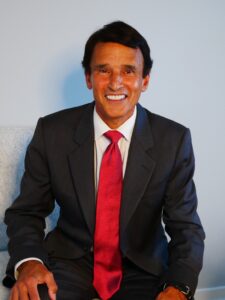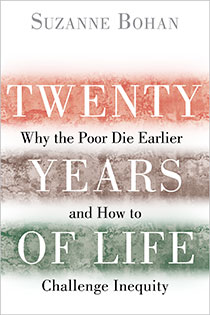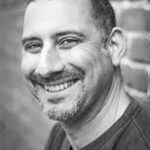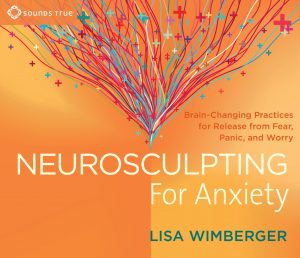by Rona | Jul 8, 2021 | KPFA, Podcasts, Radio Shows
Are you getting the medical care you hoped for? Perhaps you really like your doctor and feel listened to and well treated. Or maybe you’re frustrated with the lack of coordinated medical care, unconscious bias, and medical systems that don’t keep patients well-being at the center of their decisions. Most people agree that the US health care system is broken, but there is also a less talked about problem to address— “physician culture.” My guest, Dr. Robert Pearl, says, “Doctors are not heroes or villains. They produce remarkable successes and abysmal failures.” We’ll discuss what doctors do well, and how some miss the mark on compassionate, science based, high quality, and effective medicine for all.
**Listen now to About Health on KPFA.org—94.1FM, (7/12/21)**
ROBERT PEARL, M.D. is the former CEO of The Permanente Medical Group (1999-2017), the nation’s largest medical group, and former president of The Mid-Atlantic Permanente Medical Group (2009-2017). In these roles he led 10,000 physicians, 38,000 staff and was responsible for the nationally recognized medical care of 5 million Kaiser Permanente members. Named one of Modern Healthcare’s 50 most influential physician leaders, he is an advocate for the power of integrated, prepaid, technologically advanced and physician-led healthcare delivery. He serves as a clinical professor of plastic surgery at Stanford University School of Medicine and is on the faculty of the Stanford Graduate School of Business, where he teaches courses on strategy and leadership, and lectures on information technology and health care policy. Board certified in plastic and reconstructive surgery, Dr. Pearl received his medical degree from the Yale University School of Medicine, followed by a residency in plastic and reconstructive surgery at Stanford University.
is the former CEO of The Permanente Medical Group (1999-2017), the nation’s largest medical group, and former president of The Mid-Atlantic Permanente Medical Group (2009-2017). In these roles he led 10,000 physicians, 38,000 staff and was responsible for the nationally recognized medical care of 5 million Kaiser Permanente members. Named one of Modern Healthcare’s 50 most influential physician leaders, he is an advocate for the power of integrated, prepaid, technologically advanced and physician-led healthcare delivery. He serves as a clinical professor of plastic surgery at Stanford University School of Medicine and is on the faculty of the Stanford Graduate School of Business, where he teaches courses on strategy and leadership, and lectures on information technology and health care policy. Board certified in plastic and reconstructive surgery, Dr. Pearl received his medical degree from the Yale University School of Medicine, followed by a residency in plastic and reconstructive surgery at Stanford University.
Dr. Pearl hosts the podcasts Fixing Healthcare and Coronavirus: The Truth and he publishes a newsletter, Monthly Musings on American Healthcare. He has published more than 100 articles in medical journals and contributed to numerous books. From 2012 to 2017, Dr. Pearl served as chairman of the Council of Accountable Physician Practices (CAPP), which includes the nation’s largest and best multispecialty medical groups, and participated in the Bipartisan Congressional Task Force on Delivery System Reform and Health IT in Washington, D.C. Connect with Dr. Robert Pearl on Twitter @RobertPearlMD, LinkedIn, and at his website robertpearlmd.com.
by Rona | Mar 27, 2019 | Appearances, KPFA, Podcasts, Radio Shows

On About Health, 4/1/19 we discussed the social determinants of health, and how some communities are coming together to build a better life!
“The strain of living in a poor neighborhood, with subpar schools, lack of parks, fear of violence, and few to no healthy food options, is literally taking years off of people’s lives.” —Twenty Years of Life
Good health is not just an individual choice. Where you live, your access to healthy food, your exposure to toxins, your children’s ability to play outside, your chronic stress, your income, and the quality of schools, all impact the health of your family. We need to rethink the root causes of disease.
Guests:

Suzanne Bohan, author of Twenty Years of Life, covered health and science for twelve years with the Bay Area News Group, which includes the San Jose Mercury News, Contra Costa Times, and OaklandTribune. She has won nearly twenty journalism awards, including a White House Correspondents’ Association award for her reporting on health disparities. She has a master’s degree in journalism from Stanford and a bachelor’s degree in biology. Suzanne Bohan is coauthor of 50 Simple Ways to Live a Longer Life: Everyday Techniques from the Forefront of Science.

Jason Corburn, PhD, is a Professor at the University of California, Berkeley, jointly appointed in the Department of City & Regional Planning and the School of Public Health. He directs Berkeley’s Institute of Urban and Regional Development, a joint Master of City Planning (MCP) and Master of Public Health (MPH) degree program, and he leads the Center for Global Healthy Cities. His research focuses on the links between environmental health and social justice in cities, notions of expertise in science-based policy making, and the role of local knowledge in addressing environmental and public health problems. To learn about Jason’s extensive experience and publications go to https://www.jasoncorburn.com.
by Rona | May 18, 2018 | Announcements, Appearances, KPFA, Podcasts, Radio Shows
Learn about Brain-Changing Practices for Release from Fear, Panic, and Worry
“About Health” on 94.1FM KPFA.org
Listen here: https://kpfa.org/player/?audio=285641
This was a fund raising show that aired on May 21, 2018

by Rona | Dec 14, 2016 | Announcements, KPFA, Podcasts, Radio Shows
December 19th on 94.1FM KPFA.org
You can hear the show now at

We discussed Acupuncture, a form of traditional Chinese medicine that has been practiced for centuries. An acupuncturist encourages the body to promote natural healing by inserting needles and applying heat or electrical stimulation at acupuncture points.
My guests focused on their work in community clinics, treating people who in the past could not afford acupuncture.
“Our goal is to build community by delivering compassionate care in a comfortable accessible place of rest and refuge. We help create social change by offering relief from pain, suffering, stress and isolation. We envision a world where acupuncture is part of everyday life for people of diverse social, cultural and economic backgrounds.” —Sarana Community Acupuncture.
Guests:
Jeffrey Levin, LAc, received his California acupuncture license and M.S. in Asian Medicine from AIMC in 2008. After a year of successfully working in private practice, he decided to make a change. He started to work at the Oakland Acupuncture Project in early 2010, and since then has helped them open other locations. Aside from continuing to provide an average of 80 acupuncture treatments a week, Jeffery oversees (with co-owner Whitney) the operations of their three clinic locations.
Tatyana Ryevzina, LAc has been practicing acupuncture and Chinese herbal medicine for 13 years. In 2008, she helped co-found Sarana Community Acupuncture, a non-profit clinic offering affordable accessible acupuncture in a peaceful and relaxing open space. Tatyana discovered her passion for helping bring acupuncture to underserved populations while working in a public health clinic in S.F. and volunteering at CharlotteMaxwell Complementary Clinic in Oakland.

 is the former CEO of The Permanente Medical Group (1999-2017), the nation’s largest medical group, and former president of The Mid-Atlantic Permanente Medical Group (2009-2017). In these roles he led 10,000 physicians, 38,000 staff and was responsible for the nationally recognized medical care of 5 million Kaiser Permanente members. Named one of Modern Healthcare’s 50 most influential physician leaders, he is an advocate for the power of integrated, prepaid, technologically advanced and physician-led healthcare delivery. He serves as a clinical professor of plastic surgery at Stanford University School of Medicine and is on the faculty of the Stanford Graduate School of Business, where he teaches courses on strategy and leadership, and lectures on information technology and health care policy. Board certified in plastic and reconstructive surgery, Dr. Pearl received his medical degree from the Yale University School of Medicine, followed by a residency in plastic and reconstructive surgery at Stanford University.
is the former CEO of The Permanente Medical Group (1999-2017), the nation’s largest medical group, and former president of The Mid-Atlantic Permanente Medical Group (2009-2017). In these roles he led 10,000 physicians, 38,000 staff and was responsible for the nationally recognized medical care of 5 million Kaiser Permanente members. Named one of Modern Healthcare’s 50 most influential physician leaders, he is an advocate for the power of integrated, prepaid, technologically advanced and physician-led healthcare delivery. He serves as a clinical professor of plastic surgery at Stanford University School of Medicine and is on the faculty of the Stanford Graduate School of Business, where he teaches courses on strategy and leadership, and lectures on information technology and health care policy. Board certified in plastic and reconstructive surgery, Dr. Pearl received his medical degree from the Yale University School of Medicine, followed by a residency in plastic and reconstructive surgery at Stanford University.





